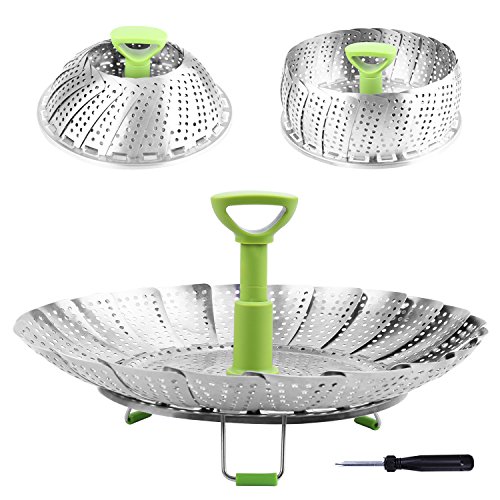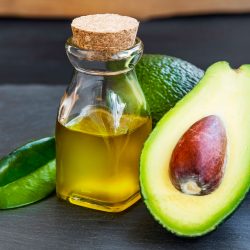Vegetables are always a healthy addition to a well-balanced diet. However, you need to know how to cook your veggies to extract the most nutrients. Unquestionably, frying is the one cooking method that has gotten a lot of bad press in recent years. But does that mean frying vegetables is always the wrong choice from a nutritional standpoint? If you're curious whether fried veggies could keep you fit, you have to check out the research we've done on this topic.
Typically, fat-soluble vitamins like A and E decrease when frying vegetables. On the flip side, most fried veggies retain significant amounts of water-soluble nutrients like B-complex vitamins.
Overall, frying is considered one of the unhealthiest ways to prepare veggies due to the increased fat, cholesterol, and calorie content. The longer you keep your veggies in oil—or the more batter you put on them—the higher chance your meal could contribute to obesity or heart disease.
Most foodies agree that fried veggies taste fantastic, but are they a good addition to your diet? If you still have questions about the pros and cons of frying veggies, you're going to love the "hot" info in this post.
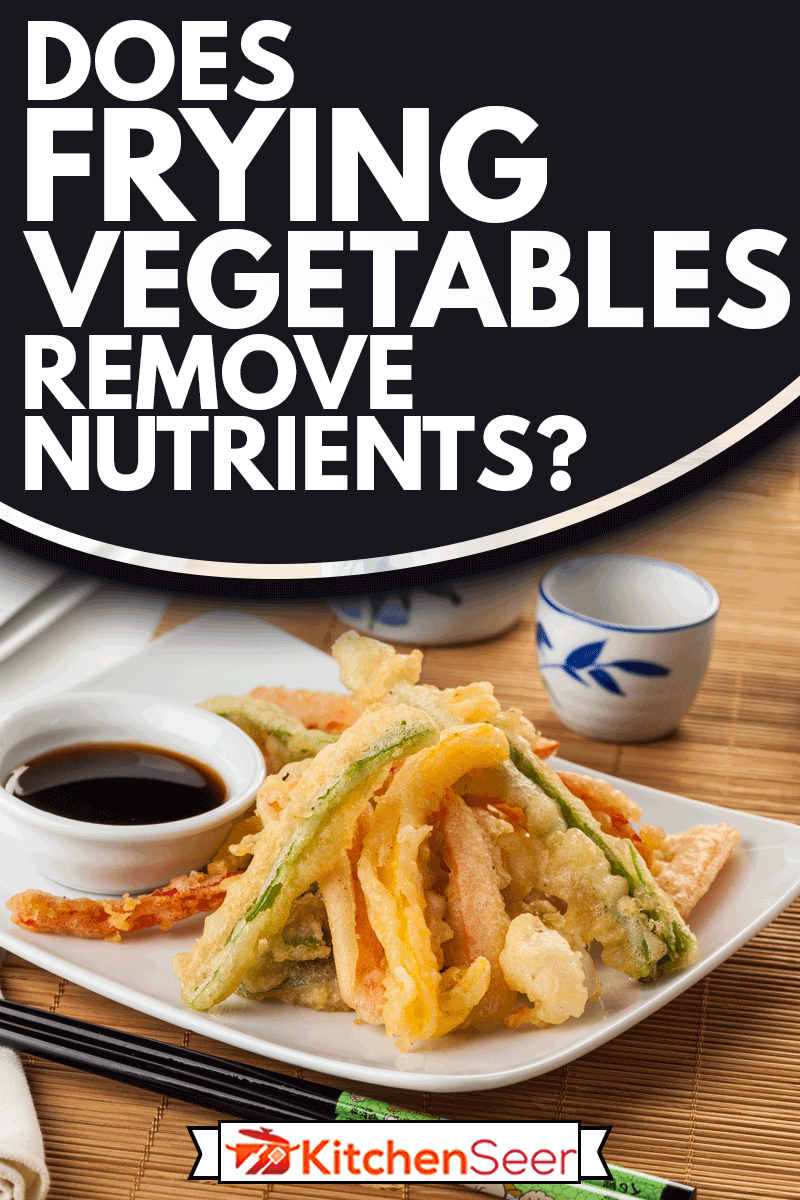
How Does Frying Affect Nutrients?
When you fry vegetables, you increase the odds of fat-soluble vitamins leaching into the surrounding oil molecules. For this reason, nutrients like vitamins A, D, K, and E are usually reduced once a fried veggie ends up on your plate. Recent evidence also suggests vitamin C content may diminish when you stir-fry veggies like cabbage.
However, most scientists believe water-soluble B-complex vitamins stay intact at high temps. Because frying is one of the quickest cooking methods, there's usually not enough time for these vitamins to reduce in a big way.
Also, there doesn't seem to be a significant impact on protein, mineral, or fiber content in fried veggies. In fact, some studies have found that fried potatoes may have slightly more fiber than raw potatoes.
Speaking of fried potatoes, be sure to check out our ultimate guide on how to make Extra Crispy French Fries.
Are Fried Vegetables Still Healthy For You?

Since fried veggies still retain some vitamins, minerals, and fiber, you could argue they're somewhat healthy. However, when you compare frying with other cooking methods, most nutritionists claim it's the least healthful option.
The reason nutritionists are so down on deep-frying has more to do with the oil than the veggies. When you deep-fry veggies, they will have more cholesterol, calories, and fat. So, even though you're getting some vitamins from these veggies, you're also taking in compounds linked with heart disease and obesity.
Another health risk associated with frying veggies is carcinogen exposure. Certain oils release harmful compounds at higher temperatures, especially if you're reusing your cooking oil. To avoid this negative effect, it's essential to use a new oil with a reliably high smoke-point (e.g., peanut oil).
Find out more on this Amazon link.
To make your "fried" veggies a little healthier, it's more beneficial to stir-fry rather than deep-fry. However, if you're using your deep fryer, try your best to avoid excessive breading and salt. These simple tips could make your deep-fried goodies heathy-ish.
Find out more on this Amazon link.
Are Fried Vegetables Better Than No Vegetables?
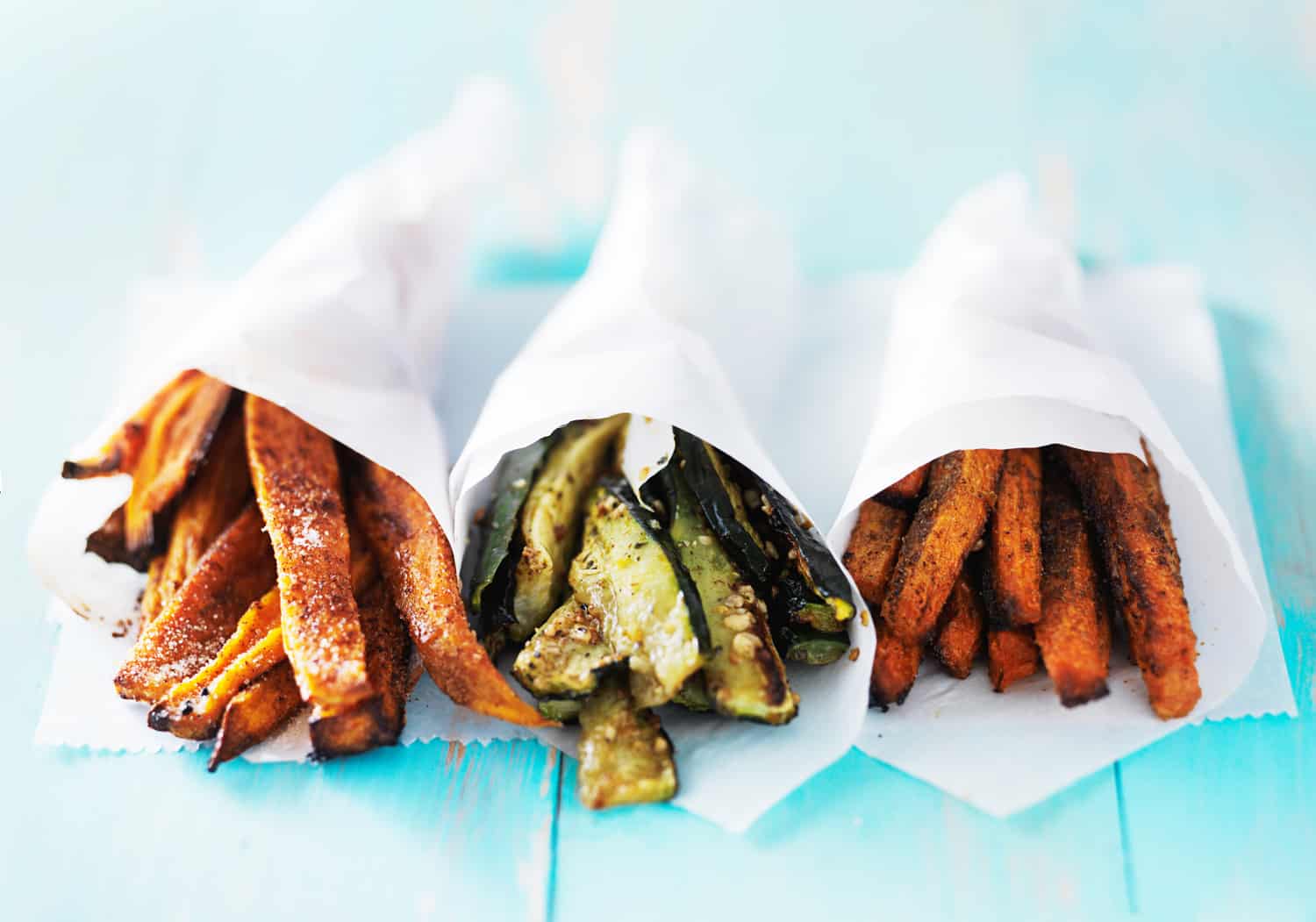
Generally, nutritionists recommend treating deep-fried vegetables as an "occasional treat" rather than a standard side. While these vegetables still have some natural nutrients, they also come with a unique set of risks. Most significantly, diets high in fried foods are often linked with conditions like obesity and heart disease.
Frying foods inevitably increases total calories and fat content. So, even though you may be getting some nutrients from the veggies, you'll potentially be eating more harmful compounds that could clog your arteries.
Besides calories, the cooking oil you choose to use could adversely affect your health. For instance, oils with a low smoke point have a high chance of giving off carcinogenic compounds that could cling to your food. Also, most nutritionists claim reusing cooking oil increases total cholesterol.
While fried vegetables may not be the worst thing to eat, they also aren't the healthiest. Arguably, the most beneficial way to "fry" most veggies is to stir-fry in a wok with cooking oil that has healthy fats like coconut oil, avocado oil, or olive oil.
Find out more on this Amazon link.
For those who aren't fans of oils, be sure to consider healthful fats like ghee, which is a traditional Indian form of clarified butter.
Find out more on this Amazon link.
If you're deep-frying veggies in batter, please know you're significantly decreasing their nutritional profile.
To learn more about stir-frying a healthy veggie dish, be sure to watch this video:
By the way, you should read our post explaining "How Much A Wok Costs" to learn more about stir-frying at home.
What Is The Healthiest Way To Cook Vegetables?
Foodies will forever argue over the "best" way to cook vegetables, but most scientists claim steaming is the healthiest option. Multiple studies suggest steaming outperforms other heating methods when it comes to retaining nutrients. Unlike boiling, steaming veggies helps them hold on to significant amounts of water-soluble vitamins. There's also evidence that steamed veggies have more antioxidants versus other methods.
For instance, a trial out of California examined the vitamin C content in broccoli, lettuce, and spinach during steaming, microwaving, and boiling. Of these three, steaming had the lowest vitamin C loss, followed by microwaving then boiling.
Find out more on this Amazon link.
Nutritionally speaking, boiling is only a good idea if you're making a vegetable soup or stew. If you pour away that hot water after boiling your veggies, then you're throwing away a boatload of B vitamins.
If you don't like steaming veggies, most nutritionists don't have an issue with microwaving or sautéeing in a healthful oil. In fact, a recent study out of Spain suggested that veggies sautéed in extra virgin olive oil may have a higher antioxidant count than boiled veggies.
Find out more on this Amazon link.
For pro tips on how to steam veggies, you've got to check out this YouTube video:
Is It Better To Eat Raw Or Cooked Vegetables?
There's a lot of contradictory science surrounding the health benefits of raw versus cooked vegetables. However, most research suggests raw and cooked veggies both have unique advantages and disadvantages.
For instance, some recent studies show raw veggies have higher vitamin C content than cooked vegetables. However, people who go on a raw food diet are more susceptible to a lycopene deficiency. Lycopene is a beneficial antioxidant often found in red fruits and veggies like tomatoes and strawberries. Interestingly, cooking tomatoes seems to increase lycopene levels by about 35 percent.
There are many other trade-offs for both raw and cooked veggies, but no one seems to "outperform" the other. Indeed, most nutritionists agree you should incorporate both raw and cooked into your diet for maximum benefits.
Are Air-Fried Veggies Healthy?

If you love the taste of fried foods but don't want all the adverse health effects, you may want to consider getting an air fryer. As the name suggests, these devices use circulating air to "fry" your food rather than a pool of oil. This helps better preserve the nutrients in your veggies without exposing you to the free radicals often found in deep-fried foods.
Find out more on this Amazon link.
You could learn more about using your air fryer for cooking veggies in this fun YouTube video:
If you've never used an air fryer before, please check out our guide to the "Best Oils For An Air Fryer."
So, Will Frying Veggies Ever Be A Health Fad?
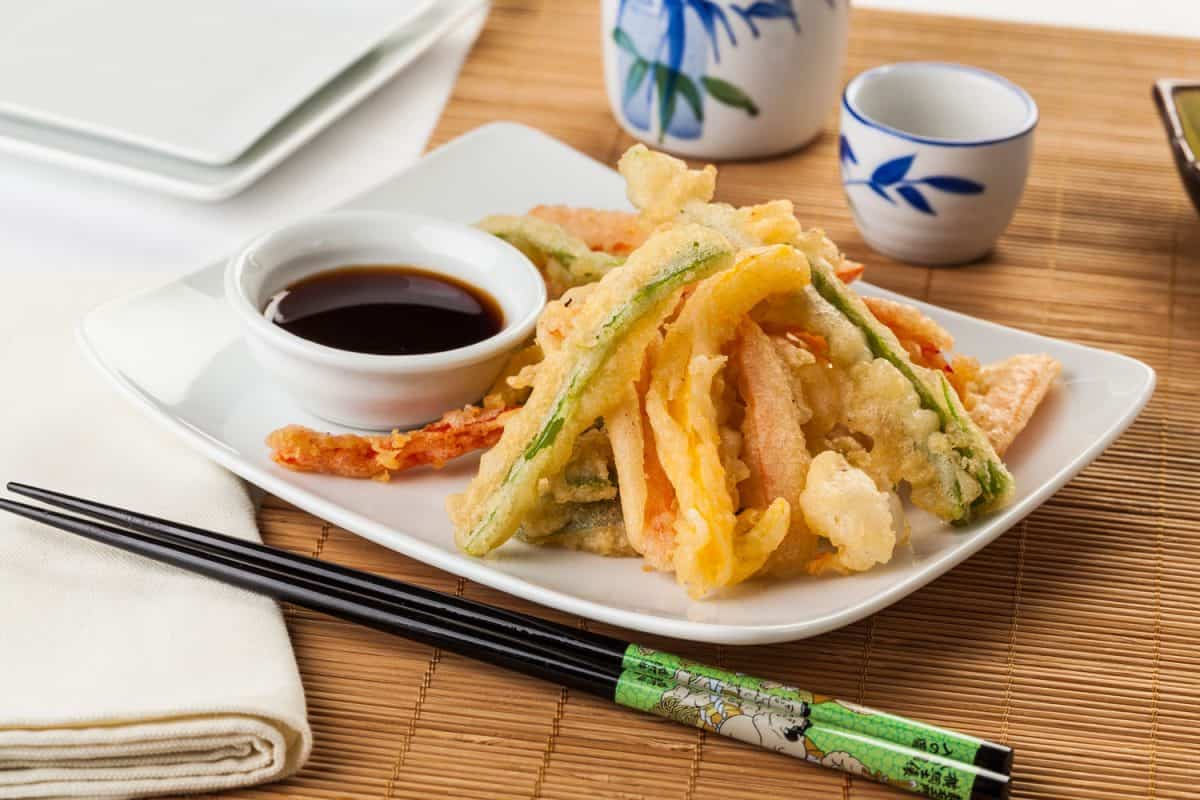
Unfortunately for our tastebuds, fried veggies will never be listed as a "health food." While frying vegetables doesn't destroy all their nutrients, it will diminish fat-soluble vitamins like A and E. Also, all that excess oil will cling to your veggies, thus increasing total cholesterol and the risk of free radical exposure. Generally speaking, fried foods increase the risk of heart issues and obesity, especially if you load on the batter and salt.
Thankfully, there are a few ways you could still enjoy the taste of fried veggies without as many adverse effects. For instance, you could try stir-frying or sautéeing with healthful oils. You may also want to consider air-frying veggies for a healthier alternative to deep-frying. These trade-offs may significantly boost the nutritional profile of your veggies.





